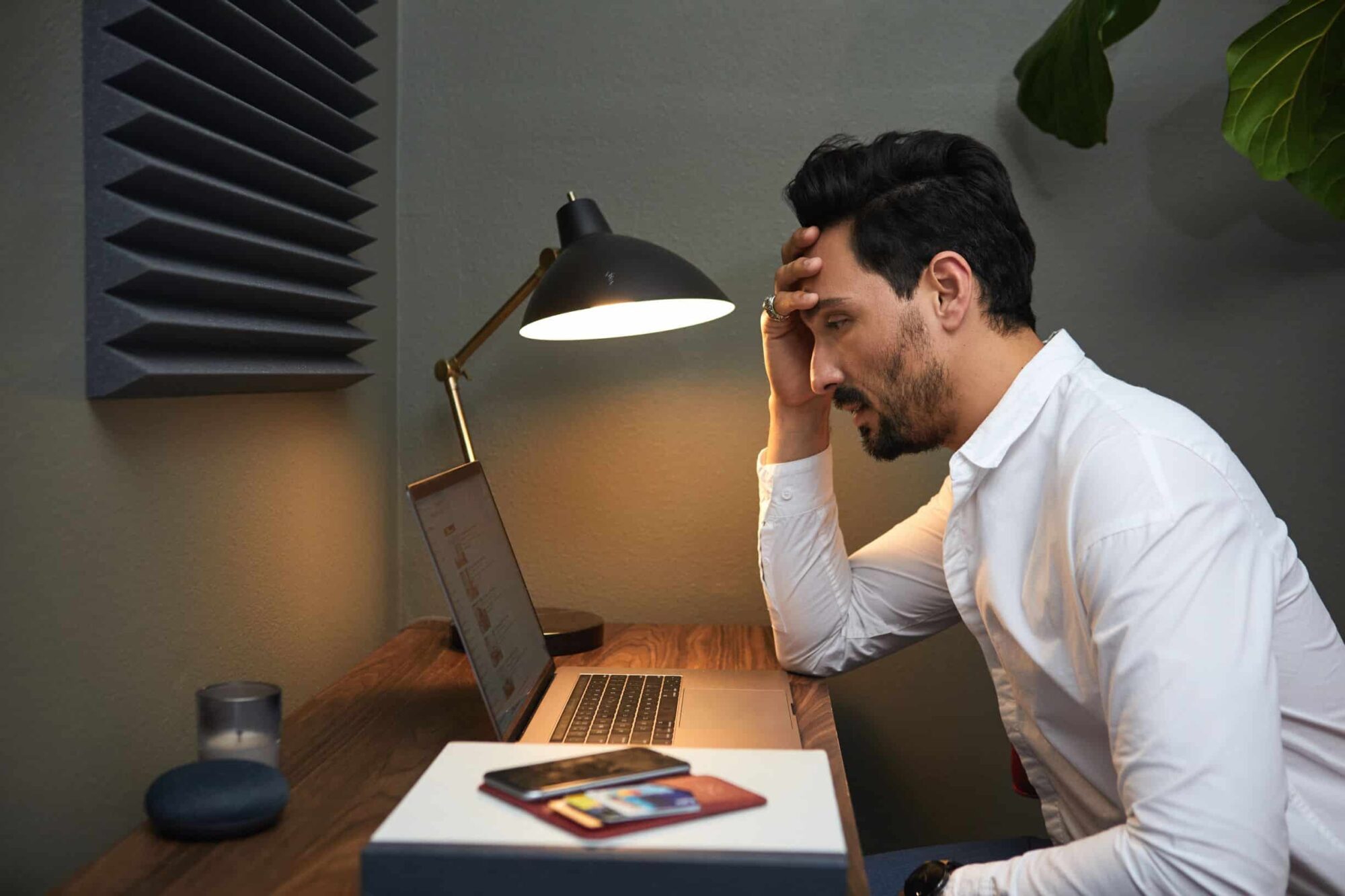You're going about your day when suddenly - and for no apparent reason - a sense of overwhelming fear kicks in. Your heart rate spikes, breathing becomes difficult, you feel like you might faint, you're sort of detached from yourself, and there's a sense that you've lost control. "What's wrong with me?", you might be thinking. "Am I having a heart attack? Am I going to die?" Your fears about what's happening only make things worse. You decide to check yourself in to the ER, only to be told that there's nothing wrong with your health - and that you might only be experiencing anxiety.
The narrative above describes a phenomenon more common than most people know and it's describing what often happens during a Panic Attack. Panic Attacks can be scary, disabling, and can increase overall anxiety due to fear surrounding whether or not they'll happen again. People who have had panic attacks often begin to avoid the places or situations that have triggered panic attacks, which can cause some severe life limitations. Some people may experience very isolated and infrequent panic attacks, while for others, it's a more regular (perhaps daily) occurrence.
The cause of panic attacks isn't fully known, but research suggests they may be linked to the body's natural fight-or-flight response. They're usually triggered by specific situations, unhelpful thinking, and body sensations that we are afraid mean something terrible.
The good news about panic attacks is that although they can be very frightening, panic attacks themselves are not life threatening or dangerous. There are also things that can be done to manage panic symptoms and to prevent panic attacks from occurring. Below, you'll see a list of things that can be done to deal with a panic attack while experiencing one and a list of things you can do to prevent (or at least decrease likelihood) of panic attacks.
Here are a few ways to deal with a panic attack in the moment:
- Acknowledge that what you're experiencing is a panic attack. Panic attacks can be scary, but some of the fear associated with panic can be relieved when we know and understand what's going on. Your body can only stay in a heightened state of anxiety/panic for so long (usually no more than a few minutes), so remember that this will pass and that it is not life threatening.
- "Float with your Anxiety" - when dealing with a panic attack, no matter how bad, it's important to be with it, to ride it, and to experience whatever you are experiencing without escaping the situation or engaging in any other kind of distraction. Float with it and try to engage in whatever it is you were engaging in before it kicked in. As scary as it might feel, what you're probably experiencing is an increase in adrenaline levels that lead to uncomfortable symptoms. There's a big difference between being uncomfortable situation and a dangerous situation, and it's important to remember that.
- Practice Slow Breathing. Hyperventilation that often occurs during a panic attack only serves to increase fear and the sensations associated with a panic attack. Slow, deep breaths, can help reduce those symptoms. Breathe in to the count of 4, allowing air to fill your chest and belly. Slowly release the air and then repeat.
- Use mindfulness strategies: Instead of trying to fight the response or to escape your situation, try to identify the sensations you are feeling and sit with those sensations. Ride the wave of anxiety and remind yourself that the anxiety will pass.
When dealing with panic attacks, the ultimate goal is to learn that the panic attacks (and symptoms that come along with them) are not actually anything to be afraid of. We learn to change our attitude towards anxiety/panic instead of doing everything we can to stop them or to avoid them from happening. We start to understand that our fears about worst-case scenarios or what might happen when we experience a panic attack are unfounded and don't come true.
Here are a few things you can do to prevent panic attacks
- Learn about anxiety and panic. When you better understand what's going on and how to deal with anxiety and panic, you gain a sense of control.
- Identify your triggers. Write a list of the specific places/circumstances that panic attacks occur. Understand when and where they occur so you can better understand the things that trigger your panic. Examples of places/situations that frequently trigger panic attacks include: small/enclosed spaces, social situations, flying, highly stimulating public places, or places where something bad has happened to you in the past. As you'll see explained in number 7 below, it's important that you do not start to avoid those triggering things or places.
- Get a physical: Tell your doctor about your anxiety and ask for a full physical to rule out any medical conditions that may contribute to anxiety. If any of your anxiety is linked to health concerns, properly dealing with those concerns can decrease anxiety.
- Seek Therapy: Talk-therapy with a trained mental health professional can help you better understand your anxiety and will allow you to develop tools and strategies for dealing with anxiety and panic. Cognitive Behavioral Therapy and Exposure Therapy are evidence-based approaches that have shown to be very effective in treating anxiety. They involve addressing the unhelpful and distorted thinking patterns that lead to anxiety and slowly/gradually exposing yourself to situations that cause anxiety and panic.
- Medication Management: Although medication for anxiety/panic is not always necessary, it may be a good option if anxiety is severe and if benefits of talk-therapy alone have not been enough to manage symptoms. Your Therapist can provide you with a referral to a psychiatrist or to your primary care doctor to explore possible options.
- Limit caffeine, alcohol, and nicotine intake. Use of caffeine, alcohol, and nicotine all have links to anxiety. Caffeine and nicotine are stimulants that increase anxiety. Although alcohol can decrease anxiety while drinking, people often report much higher levels of anxiety the day after drinking in excess.
- Do not avoid situations that have triggered panic attacks. When we start to avoid people, places, and situations that trigger panic attacks, we only reinforce the anxious response further. Continuing to expose yourself to those situations will help you cope better in those environments and desensitize you to the stimulus over time.
- Practice a daily mindfulness meditation exercise. Practicing guided mindfulness meditations can help decrease overall anxiety and help you to be better equipped to handle anxiety in a mindful way if a panic attack occurs.
- Get adequate nutrition, sleep, and exercise. Overall improved health can decrease anxiety. Much research has been done on the natural anxiety-relieving benefits of exercise.
- Learn how to manage stress. Seek balance in your life, take time for yourself to relax, and practice good self-care. Family and career-related needs can only be met effectively, when you've met your own needs first. Explore stress-reduction techniques, practice time management, and try not to overextend yourself as it relates to obligations.
Although I already recommended seeking therapy for panic attacks, I cant emphasize enough how important this is - especially for severe cases where life has been severely negatively impacted. When looking for a therapist, make sure you find someone who specializes in working with anxiety disorders.
If you're considering starting counseling to deal with Anxiety or Panic attacks, feel free to send us a message or to call or text 813-515-9602.
Float on Counseling, LLC is located in the Carrollwood area of Tampa on North Dale Mabry Hwy.

